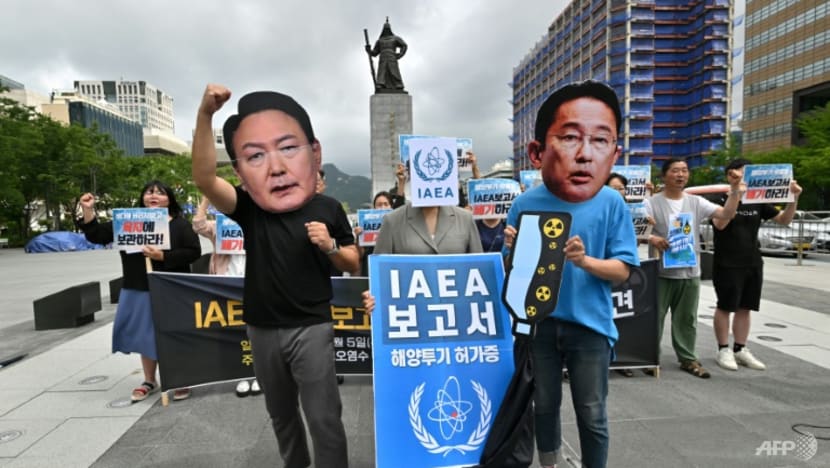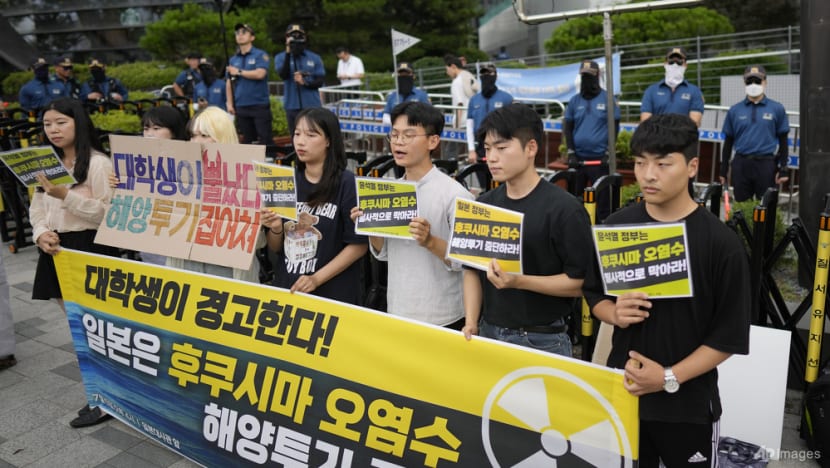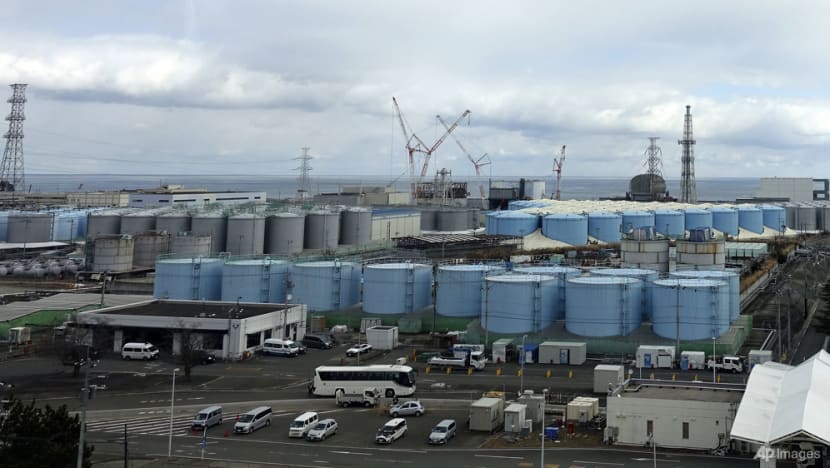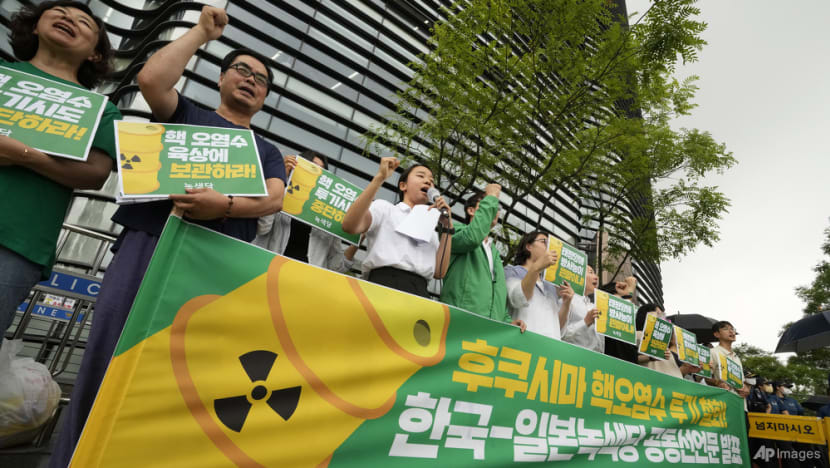Protests in South Korea over Fukushima nuclear plant wastewater release
A survey conducted last month showed that 84 percent of South Koreans were against the Fukushima water release.

The public in South Korea is strongly opposed to the plan to release water from the Fukushima nuclear plant in Japan (Photo: AFP/Jung Yeon-je)
SEOUL: South Koreans have taken to the streets to protest Japan’s plan to discharge treated radioactive water from the disabled Fukushima Daiichi nuclear power plant into the sea.
On Wednesday (Jul 5), South Korea said it respects the conclusions of a safety review by the United Nations’ nuclear watchdog, which approved Japan’s plan to release the wastewater.
This comes after the International Atomic Energy Agency (IAEA) on Tuesday said a two-year review showed that the plans were consistent with global safety standards and would have a “negligible radiological impact to people and the environment”.
RESISTANCE FROM MANY SOUTH KOREANS
However, not everyone shares the South Korean government’s sentiment.
Opposition politician Lee Jeong-mi has been staging a hunger strike outside the Japanese embassy in Seoul for more than 10 days to protest Japan's plan to release what she calls “contaminated water” into the ocean.
Ms Lee told CNA that the IAEA report could not be trusted, as it did not present scientific evidence over safety concerns.
“We had expected the IAEA to say something like the review was done based on scientific methods that proved it is safe (for the treated water) to be released into the ocean,” said the leader of the minor opposition Justice Party.
“Instead, the review has many holes for us to trust the report.”

Ms Lee also accused the South Korean government of staying silent, even though the majority of South Koreans were against the Fukushima water release.
A survey conducted last month showed that 84 percent of South Koreans were against Japan's plans.
About seven out of 10 people said they would consume less seafood if the water was released, according to the survey.
EXPERTS DIVIDED OVER WHETHER WATER RELEASE WOULD BE SAFE
Globally, experts are divided on whether the release of treated water from the Fukushima plant into the sea would be safe.

Several of the Fukushima Daiichi plant's reactors went into meltdown after cooling systems were overwhelmed by a massive tsunami in 2011.
Japan's government maintains that it has treated the water - enough to fill 500 Olympic-sized swimming pools - that was used to cool the fuel rods of the power plant after it was damaged.
The wastewater has been filtered to remove most radioactive elements except for tritium, an isotope of hydrogen that is difficult to separate from water.
Water storage tanks at the Fukushima site are estimated to be full as early as next year, and space for building more is scarce.

Plant operator Tokyo Electric Power Company (TEPCO) had said that it would discharge the water into the sea over the course of 30 to 40 years.
After the IAEA’s stamp of approval, Prime Minister Fumio Kishida said his country would now aim to gain acceptance for its plan both domestically and internationally.
The plan to discharge the treated radioactive water in Fukushima comes as Seoul and Tokyo are trying to improve bilateral relations hurt by historical disputes.
SOUTH KOREA GOVERNMENT TO SHARE OWN FINDINGS SOON
“The government's fundamental position has been to respect the decisions made by IAEA, as it is an internationally recognised organisation,” said Mr Park Ku-yeon, a vice-ministerial official at South Korea's Office for Government Policy Coordination.
“This remains the same this time as well.”
“Our internal review process has been ongoing for the past two years,” said Mr Park.
“The process is in its final stages. When we make our final announcement, we will provide an in-depth analysis of the IAEA report.”
Currently, South Korea still has a ban on imports of Japanese food products from areas around the Fukushima nuclear plant.
Japan has called on the South Korean government to lift the ban, but Seoul said the import ban will stay until concerns over the contamination issues ease.
The IAEA director-general is expected to explain more about the agency’s final report on the issue and meet with South Korean officials including Foreign Minister Park Jin.


















